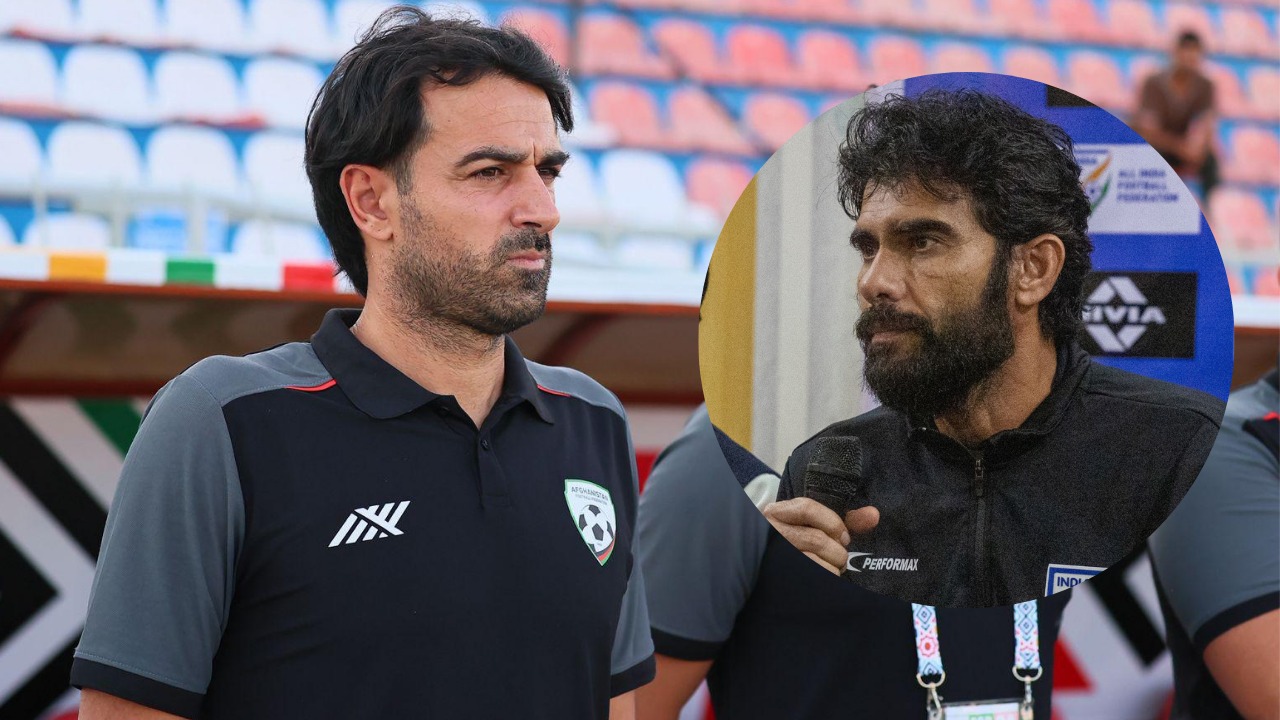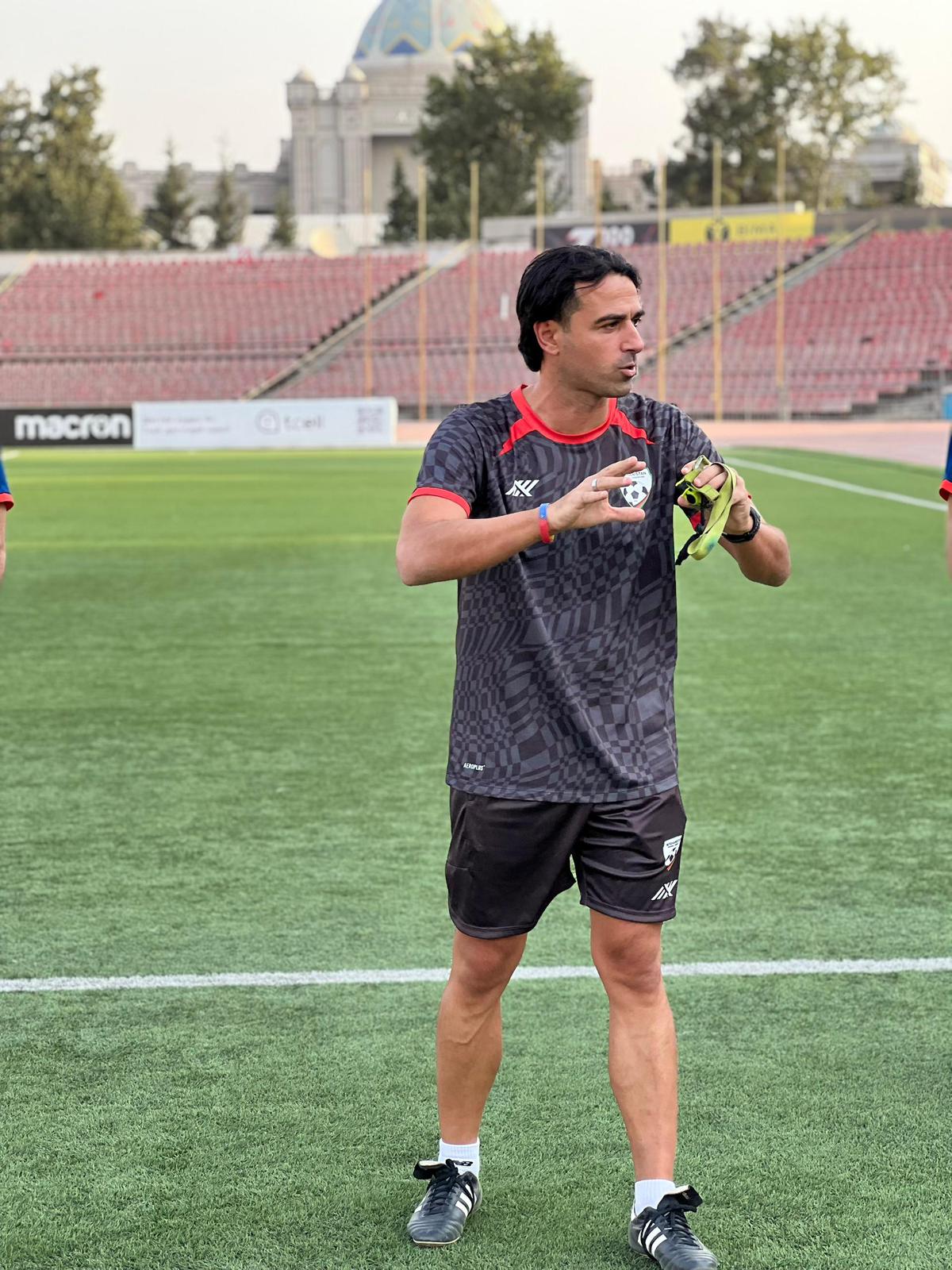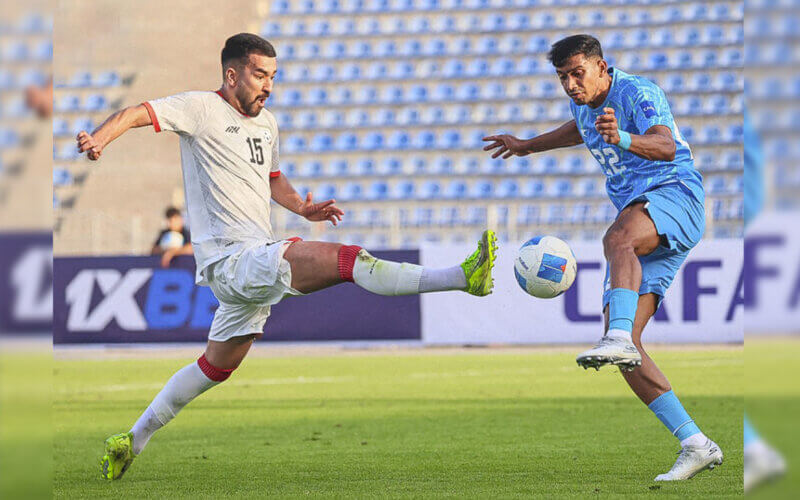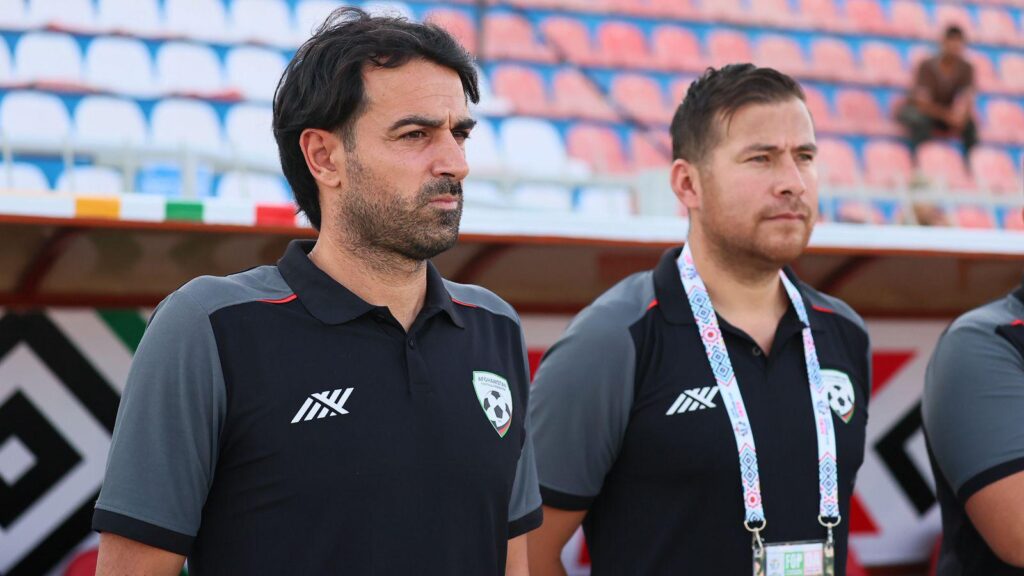
In the recently concluded CAFA Nations Cup, India, under newly appointed head coach Khalid Jamil, exceeded expectations by taking third place. On the way, they defeated Tajikistan, lost to Iran, drew with Afghanistan, and finally secured third place by defeating 79th-ranked Oman on penalties.
To decode the campaign and understand the way forward for Indian football, we spoke to Vincenzo Alberto Annese, current Afghanistan national team head coach. Formerly coach of Gokulam Kerala, he was a two-time I-League champion with the Malabarians. He spoke about Khalid Jamil’s tactics, India’s league structure, how Afghanistan football is trying to improve, and much more.
Rohan: Experience with the Afghanistan national team and in the CAFA Nations Cup?
Annese: Hello to every Indian football fan reading this. I miss them a lot. My experience so far with the Afghanistan national team and in the CAFA Nations Cup has been great. We improved game by game. We’re working with some new talents in the team, and I’m very happy with the progress we’ve made. Perhaps not in terms of results, but with the overall development. I think we deserved some more points.
Rohan: How was facing India? A team you know pretty well. You’ve won the I-League twice. Walk me through your experience in the India game.
Annese: Well, yes, it was a strange feeling facing India. The last time I faced them was with Nepal, and we lost 2-0 in the SAFF Championship in Bengaluru. This time, it was a much better encounter with lots of positives. I was really happy to see two of my former players from Gokulam – Jithin (MS) and Uvais (Muhammed) – in the starting XI. It was really important for me to see them represent the national side. India is a side with a lot of potential, and they could have played better.
The goalkeeper did wonders for them, making some impossible saves, especially in the second half. Any other goalkeeper in Asia would have struggled to save those. Honestly, I don’t remember seeing better saves at this level in the recent past. India need to thank Gurpreet (Singh Sandhu) for his performance in the CAFA Cup throughout. They were lucky to get one point against us.
Talking about strategies, we knew India would sit back, wait for us to give away the ball, and rely on counter-attacks. I think we had more than 70 per cent of ball possession. I have managed four different national teams – Belize, Nepal, Armenia and, now, Afghanistan – and I don’t remember dominating possession from the start to the final whistle, especially in the second half. I don’t remember India attacking our box as the game progressed.
I know Khalid’s style of play from Jamshedpur FC, but to develop Indian football, I think he needs to propose a more positive approach. He has just taken charge and hasn’t had much time to work with the players. I’m sure we’ll see a more progressive approach in the coming days.

Rohan: Do you think Indian players have the ability to match the European standards of passing football, which many European coaches have tried to implement, or is Khalid Jamil simply doing the best version possible?
Annese: Well, I don’t personally think this is the best possible version. India do have talented players who are capable of playing passing football. Any UEFA Pro coach would not approve of this style, and personally, I don’t see progression in this ideology. Yes, this tactic may get results initially, but it’s not the way to develop football.
I think because Khalid just came in and didn’t get much time to build coordination, we will see some changes in the coming days. As a coach, he has done really well at club level — with Jamshedpur, and earlier with Aizawl FC — but for me, personally, this is not the best way to develop football.
Even against Oman, they did well defensively but didn’t change tactics much. I still feel the same way.
Rohan: Some thoughts on Afghanistan football? Politically, the country is not in the perfect space. In cricket, they’ve done really well. How are they doing in football? And how difficult is it to work with a team scattered throughout the year?
Annese: In football, too, the Federation is trying its best to develop the sport. I’m not the best person to speak about politics, but in football, they are trying to revive the scenario. They have a new league that started in 2021, and the current season will start in November. It’s a short league, but still a step forward. Abu Muslim FC even played in the AFC Challenge Cup. Though they lost against Paro FC and exited, it was still a big step forward.
As for the players, yes, it’s difficult to regroup them and build coordination because we’ve formed the team with players from 14 different countries — all with dual citizenships. We have players from England, Bosnia and Herzegovina, Russia, Canada, Germany, Norway, Sweden and many more. It’s difficult to combine all these players in a short span and make them play in coordination, but we try to make them understand the common goal. With time, I believe this team can do well at the Asian level.
Rohan: In your career, you’ve coached in different countries, won trophies with clubs, and managed national teams — which is more challenging? Club or country?
Annese: For me, both are challenging, and I always try to get good results with whichever team I work with. My main aim is always to improve the country’s football and develop domestic players, even when I’m working with a club.
The basic difference is that you get more time with a club. You play regularly and have many opportunities to improve day by day. With a national side, you don’t play often, and regrouping the players is a challenge. It usually takes about two years to see results with a national team.
I’ve coached both club and national teams — club football has more intensity, while international football is more emotional. You feel a sense of pride because you represent a country.

Rohan: Coming back to India. Do you think that, given time, Khalid Jamil will do well with this team?
Annese: Khalid is a good coach who has done well at the club level, and in this tournament, he got results with the national team. But for me personally, I don’t approve of this playing style. I believe football should be played on the ground, not just by defending and hitting long balls forward.
For a team like India, with so much talent, if they aspire to play the World Cup one day, they must learn to play possessional football and create something different compared to other teams at this level. Iran has done it, Uzbekistan is doing it — their players can play in different roles, and they’ve improved so much over the years. That’s the direction India needs to take.
Rohan: What’s the way forward in your opinion? We haven’t found a replacement for Sunil Chhetri yet — India needs improvement in several departments. What’s your take?
Annese: Yes, Chhetri was a great player, a true legend of the country, but it’s time to find the right replacement. Maybe the AIFF can make a rule to include more attackers in club football, or something like that.
For me personally, the I-League is more interesting than the ISL (Indian Super League) — and I’m not saying that because I won it twice. I’ve worked in the ISL as well, but there, the difference is usually made by the foreigners. In the I-League, you see real Indian talents and how local players make a difference for their teams.
It’s good to see Khalid scout from the I-League, and I was happy to see Jithin and Uvais make the national team.
Another big aspect is relegation. I think ISL should introduce relegation soon — maybe relegate one team, promote two teams, and increase the number of teams over the next few years. Everything will change once relegation is introduced in ISL. Teams will fight harder to avoid relegation, clubs will push harder to gain promotion, and competition will rise. That is going to improve Indian football. Relegation is very important. It creates the hunger to improve.
Rohan: Thank you, coach! It was lovely talking to you.
Annese: Thank you so much, and to all Indian football fans. I once applied for the national team head coach position, and perhaps someday I can coach the Blue Tigers.
For more exclusive stories, follow RevSportz





